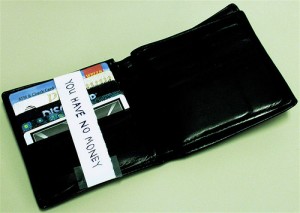
Heartache and heartbreak are hard enough to endure but imagine having to go through the loss of a relationship while the world looks on. Such is the high price of celebrity divorce and the latest victim is the beautiful and talented television chef, Nigella Lawson. Shocking photos of Nigella apparently being choked by her husband, Charles Saatchi, surfaced in the media following the June 9th dinner at Scott’s restaurant in Mayfair, London, where the incident occurred. Saatchi’s advisors urged him to humble himself and admit a public apology for the assault. Saatchi denied any wrongdoing, saying he never assaulted her and in fact, was actually removing mucous from his wife’s nose. Nigella was stunned by the admonition of “nose-picking” and his refusal to apologize. She left Saatchi and their family home in Chelsea.






 budget” width=”300″ height=”213″ />We are almost following his
budget” width=”300″ height=”213″ />We are almost following his 